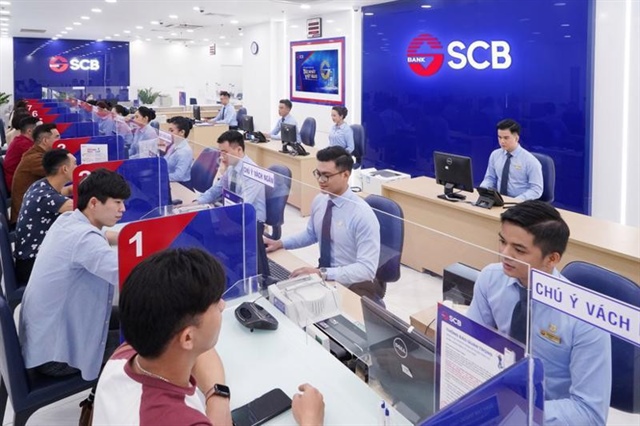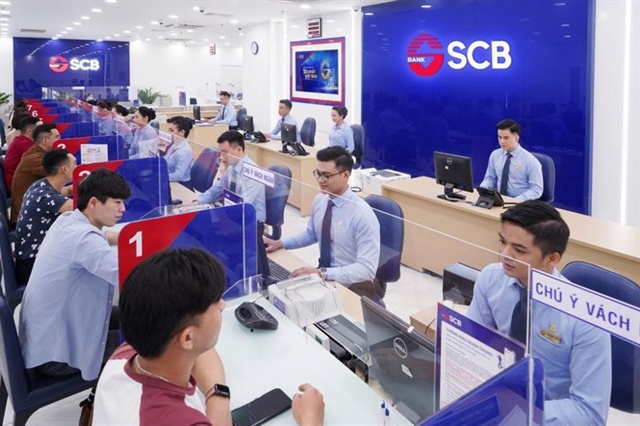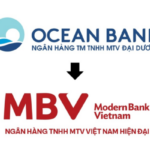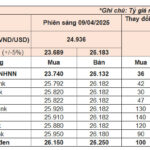In a report submitted to the National Assembly at the 9th Session of the XV Congress, the Governor of the State Bank of Vietnam (SBV) announced plans to address weak banks and credit institutions in 2025, with a particular focus on preventing the emergence of new weak banks.
The SBV has made significant progress in this direction by issuing mandatory transfer decisions for three banks subject to compulsory purchase (OceanBank, Construction Bank, and GPBank) and Dong A Bank, marking a crucial step in the restructuring process of weak banking systems.
As a result, the stability and safety of credit institutions have been maintained, ensuring the protection of depositors’ legitimate rights.
According to the report, the SBV has submitted a report to the government on the restructuring plan for Saigon Commercial Bank (SCB) based on the investor’s restructuring plan.

The SBV has submitted a report to the government on the restructuring plan for SCB. |
On April 18, the SBV submitted a report to the Prime Minister, addressing the comments made by the Government members. Following the Government’s Resolution 25 on April 29, the SBV is currently refining the SCB restructuring plan for submission to the competent authority for approval.
The report also states that joint-stock commercial banks are actively implementing restructuring plans approved by the competent authorities. Essentially, these banks are focusing on comprehensive consolidation and improvement in finance, governance, and operations to enhance business efficiency and competitiveness.
The banks have been actively growing, expanding their scale, promoting credit and capital mobilization, and improving their solvency and financial health indicators. Simultaneously, they are working on bad debt handling, risk management, and enhancing credit quality, especially in high-risk areas. Many banks are also expanding their payment services, non-credit services, retail and consumer credit, and diversifying their banking services.
As of February 2025, the non-performing loan ratio in the credit institution system (excluding five banks: MBV, GPBank, NCB Neo, Vikki Bank, and SCB) stood at 1.88%.
|
On October 15, 2022, the SBV announced a special control decision over SCB to stabilize its operations. This measure, in accordance with legal regulations, aims to tightly control and limit negative impacts on the credit institution and the broader banking system. As a result, SCB’s operations are now conducted under the SBV’s control. The SBV selects and appoints experienced and qualified executives from state-owned commercial banks (Vietcombank, BIDV, VietinBank, and Agribank) to manage and operate SCB. |
Tuân Nguyễn
– 1:00 pm, May 7, 2025
“Eximbank Aims for Nearly VND 5.2 Trillion in Profit This Year, Elects New Board of Directors”
“The recently released minutes from the 2025 Annual General Meeting of Vietnam Export Import Commercial Joint Stock Bank (Eximbank) contained some notable revelations, as per the HoSE: EIB listing.”
The Capital Injection Conundrum: Why Are Businesses Still Struggling to Secure Loans Despite Banks’ Efforts?
The banking sector injected nearly VND 200,000 billion into the economy in the first few months of the year, yet businesses still cry out for easier access to this capital. Experts assert that directing this bank funding towards businesses requires a harmonious interplay between governing policies, strategic banking initiatives, and proactive enterprise from businesses themselves.





















